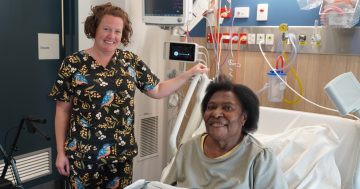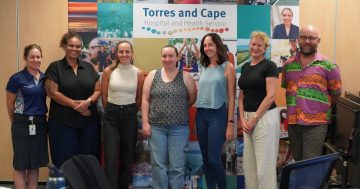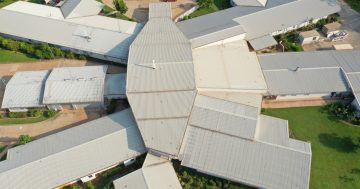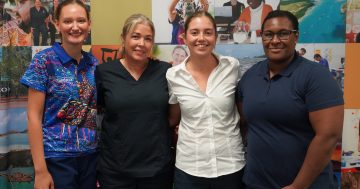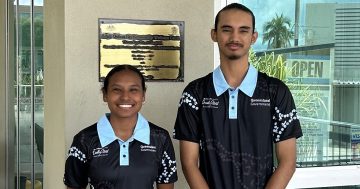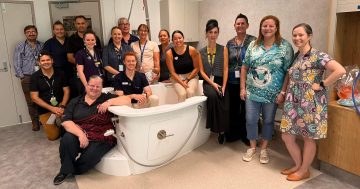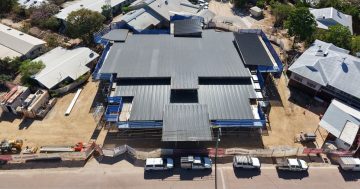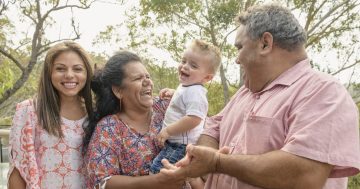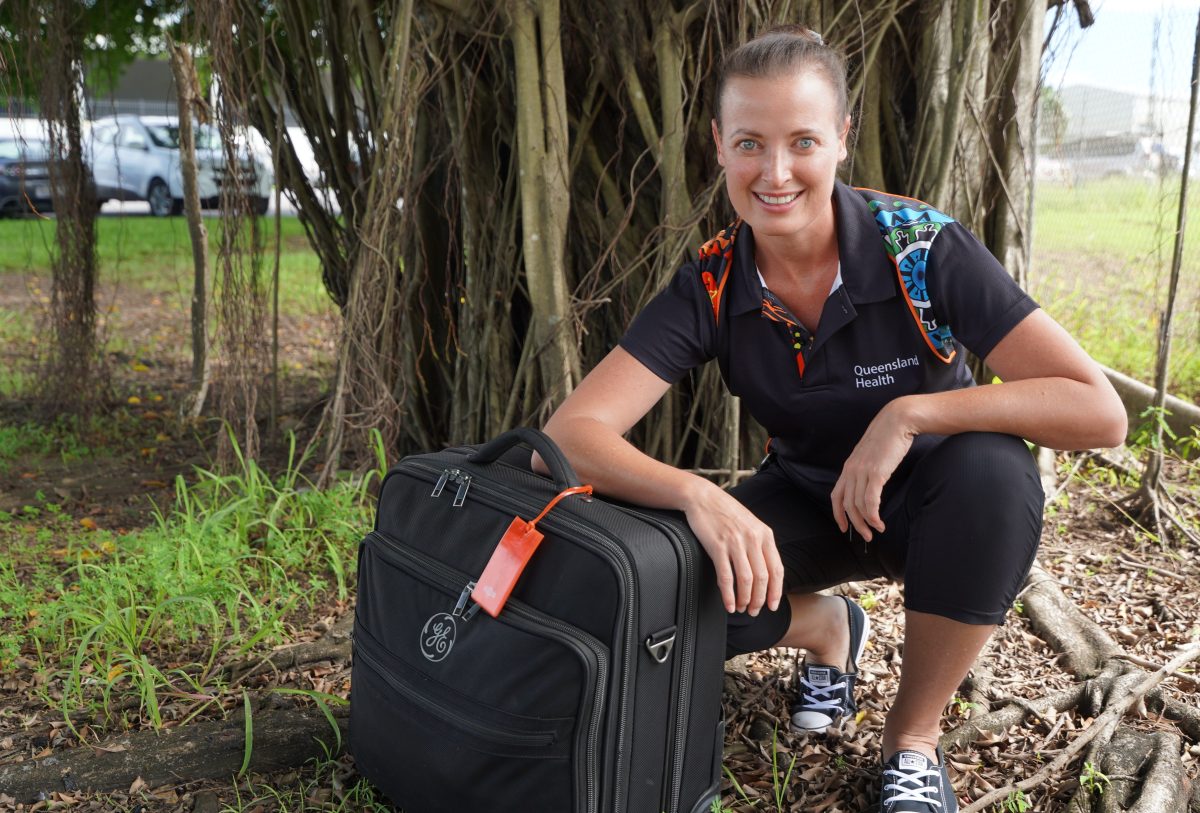
Cardiac sonographer Sheena Foskett performs echocardiograms in community across the TCHHS region. Photo: Torres and Cape Hospital and Health Service.
Twenty-eight communities across Cape York and the Torres Strait are expected to have access to heart scans in their own backyard, following a pioneering program helping tackle acute rheumatic fever (ARF) and rheumatic heart disease (RHD).
First Nations peoples are one of the major at-risk groups for RHD and ARF, meaning early access for an echocardiogram is vital for residents living in the northernmost part of the Torres and Cape Hospital and Health Service (TCHHS) catchment area.
Cardiac sonographer Sheena Foskett said more than a third of the echocardiograms she performed last year were on people with RHD.
“RHD is a disease of poverty and disadvantage,” Ms Foskett said.
“It was essentially eliminated in non-Indigenous Australian population decades ago, and shouldn’t exist in a prosperous country like Australia.”
She explained the disease was a diagnosis that a patient would carry for the rest of their life.
“I believe everyone should be entitled to the same access to services no matter where they live, which is why I am so passionate about delivering this on-Country program,” Ms Foskett said.
TCHHS executive director of medical services Dr Marlow Coates said once people were diagnosed with ARF or RHD, they could receive treatment to prevent it from causing long-term cardiac damage, such as heart failure and strokes.
“Once diagnosed with ARF or RHD, patients require regular scans to ensure appropriate ongoing management, and it’s important that they turn up to their scheduled appointments for these scans,” he said.
“That’s why having an on-Country service to deliver these scans is a huge benefit, and highlights our dedication to bringing services closer to home.”
TCHHS recorded 28 cases of RHD and 28 cases of ARF in 2023, compared with 64 cases of RHD and 25 cases of ARF in 2022.
To date in 2024, there have been four cases of ARF and one case of RHD.
“Acute rheumatic fever and rheumatic heart disease are often not recognised by the community as a big problem, but as a health service, we are focused on both preventative and treatment measures,” Dr Coates said.
Original Article published by Chisa Hasegawa on Cape York Weekly.


